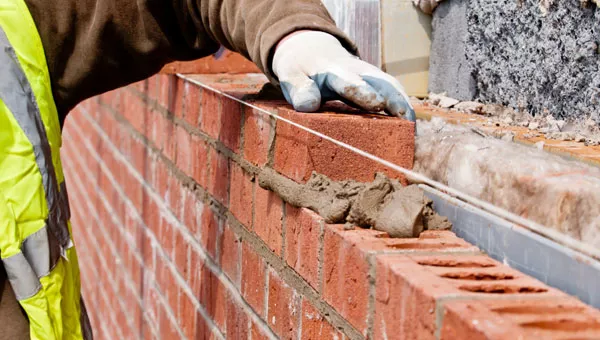Expert Step Repair Services: Ensure Safety And Security and Toughness
Expert Step Repair Services: Ensure Safety And Security and Toughness
Blog Article
Opening the Keys of Sustainable Stonework Construction Practices for Eco-Friendly Buildings
In the realm of modern-day building, the pursuit of sustainable techniques has actually become extremely important. Amongst the myriad strategies to eco-friendly building, lasting stonework building attracts attention as a time-tested and resilient technique that holds a wealth of untapped potential. From the selection of materials to ingenious building methods, the secrets to achieving sustainability within stonework building and construction are multifaceted and intriguing. By exploring the benefits, materials, methods, and future patterns of lasting stonework, a deeper understanding of exactly how these practices can form the future of green structures arises.
Benefits of Lasting Stonework Construction
Welcoming lasting masonry building practices not only decreases environmental impact however also offers long-lasting economic benefits to builders and areas. By making use of materials like recycled blocks, blocks, and stones, contractors can significantly lower the carbon footprint of their tasks while promoting source effectiveness. Additionally, sustainable masonry building and construction strategies, such as appropriate insulation and thermal mass buildings, can boost power performance within structures, causing reduced functional costs with time.
Moreover, the resilience and resilience of stonework frameworks add to long-lasting economic benefits. Structures created utilizing sustainable masonry practices typically need less maintenance and repair work, equating to set you back savings for builders and residential property owners. The longevity of masonry materials also ensures that structures stay stable and safe and secure, reducing the demand for constant renovations or substitutes.
Eco-Friendly Masonry Products
Utilizing eco-friendly masonry materials is a pivotal action in the direction of enhancing the sustainability of construction practices and reducing ecological effect while maximizing long-term financial benefits. Sustainable stonework products are sourced, created, and utilized in a fashion that decreases overall environmental influence. Sustainable concrete obstructs include recycled aggregates and may feature enhanced insulation homes, adding to power effectiveness in structures.
Furthermore, natural products like adobe, rammed planet, and straw bundles offer excellent thermal mass residential or commercial properties, reducing the need for heating and cooling energy. These materials are typically locally readily available, advertising regional economic climates and lowering transportation-related carbon discharges. By picking eco-friendly masonry materials, building and construction tasks can dramatically reduce their environmental impact and contribute to the creation of healthier, more sustainable constructed environments.
Energy-Efficient Stonework Strategies
Power efficiency plays an essential duty in boosting the sustainability of stonework building and construction practices. By applying energy-efficient masonry methods, building contractors can significantly reduce the total power intake of a structure, resulting in lower functional prices and a smaller environmental footprint. One key energy-efficient masonry method is using thermal mass, which involves including dense materials like concrete or brick right into the building's framework to soak up and save heat. This assists manage interior temperatures, lowering the demand for mechanical heating and cooling systems.

Advancements in Lasting Stonework
Recent improvements in sustainable masonry practices have brought around cutting-edge strategies that are improving the building and construction market. One such advancement is the development of self-healing concrete, which uses bacteria installed within the concrete to heal fractures autonomously. This breakthrough not only decreases upkeep expenses but likewise improves the sturdiness of masonry frameworks, contributing to their sustainability.
Another notable innovation is making use of recycled aggregates in masonry building - masonry contractor. By incorporating materials such as smashed ceramic waste or recycled glass right into concrete blends, building contractors can lower the ecological influence of building and construction projects while preserving structural integrity. This practice not only draws away waste from garbage dumps yet also saves natural resources, making it a crucial innovation in sustainable stonework building and construction
Moreover, the integration of electronic style tools, such as Building Information Modeling (BIM), is revolutionizing the way masonry frameworks are intended and created. BIM permits for even more exact computations, reduced product wastefulness, and boosted power efficiency, inevitably causing even more sustainable building techniques. These advancements jointly represent a promising future for sustainable masonry building in the age of eco-friendly buildings.
Future Trends in Masonry Sustainability
With the ingenious strides made in sustainable masonry techniques, the future patterns in stonework sustainability are positioned to additional reinvent the building and construction sector. Among the key fads shaping the future of stonework sustainability is the boosted integration of innovation. Advancements such as Structure Info Modeling (BIM) and virtual fact simulations are being used to optimize stonework building and construction procedures, leading to decreased product waste and improved energy effectiveness in buildings.
Moreover, the development of unique sustainable products is set to play a considerable role in improving the eco-friendliness of stonework building and construction. masonry contractor. Technologies like self-healing concrete, recycled accumulations, and bio-based binders are getting traction for their capacity to decrease environmental influence while preserving architectural honesty

Conclusion
Finally, sustainable masonry building practices offer many advantages for environmentally friendly buildings. By making use of eco-friendly materials and energy-efficient techniques, masonry can add to a much more lasting built atmosphere. Developments in sustainable masonry are constantly being developed to even tuckpointing more improve the ecological efficiency of structures. Looking towards the future, the fad of stonework sustainability is expected to expand, leading to even more ecologically friendly and energy-efficient construction methods in the years to find.
Report this page